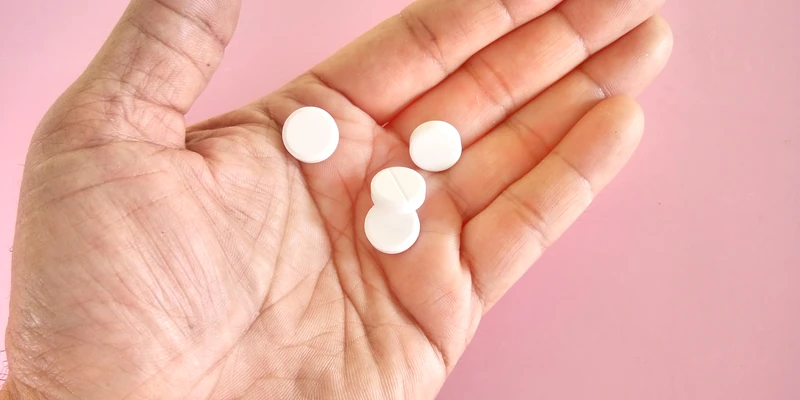If you’re dealing with methamphetamine use, or you know someone struggling with addiction, proven treatments can help you recover and rebuild. Treatment for methamphetamine addiction may include therapy, meth detox, structured rehab, and ongoing support, all of which can guide you toward lasting recovery.
How Meth Use Can Lead to Dependence
When you use meth (sometimes called crystal meth), it creates a surge of dopamine in your brain. Dopamine is what fuels motivation, pleasure, and even movement.
Over time, the brain starts to depend on methamphetamine use for those euphoric feelings. Every day experiences lose their impact, leaving you needing more and more. This cycle is what leads to meth dependence and the risk of methamphetamine overdose if use continues unchecked.
Dependence can develop quickly, especially during binge patterns of methamphetamine abuse. When you stop, withdrawal symptoms such as exhaustion, depression, and severe cravings often hit hard.
Physical and Psychological Effects of Methamphetamine Use
Meth and other stimulants are powerful drugs of abuse that target the central nervous system. Physically, methamphetamine users may notice a racing heart, high blood pressure, or sudden weight loss that feels frightening and out of control.
With heavy methamphetamine abuse, dental problems like “meth mouth” and a higher risk of infection are common. Long-term methamphetamine use can also worsen mental health, leading to anxiety, paranoia, hallucinations, and sometimes violent behaviour.
Sleep often breaks down, and depression or memory problems can linger even when people try to stay abstinent. The symptoms of meth can weigh heavily on your daily life, making even simple tasks a struggle.
On a deeper level, chronic methamphetamine abuse damages nerve cells tied to dopamine, serotonin, and norepinephrine. That’s why recovery takes time, patience, and support.
Risk Factors and Causes of Methamphetamine Addiction
Some people are more vulnerable to methamphetamine addiction than others. Here are the most common risk factors:
- Genetics and Family History: If drug addiction runs in your family, your chances of developing problems with meth use increase.
- Early Environment: Growing up around substance abuse, trauma, or settings where people abuse the drug can set the stage for future struggles.
- Mental Health: Young people and those with untreated conditions are at higher risk of methamphetamine dependence and human immunodeficiency complications, since comorbidities often go hand in hand with drug alcohol depend patterns.
- Social Pressures: Peer pressure, unemployment, stress, and isolation all increase vulnerability.
- Access to Drugs: Easy access to meth or other drugs of abuse makes significant abuse more likely and can lead quickly to methamphetamine use disorder.
Recognising Symptoms and Consequences
Meth addiction changes how you feel and act, often in ways that are painful to experience and heartbreaking for loved ones to watch.

Signs of Methamphetamine Use Disorder
You might notice sudden shifts in behaviour, mood, or physical appearance. Common signs of meth use include:
- Drastic weight loss
- Dilated pupils
- Bursts of unpredictable energy
- Mood swings or irritability
- Skipping personal hygiene
- Withdrawing from loved ones
- Talking very fast
- Showing aggression
- Physical clues like burnt spoons or glass pipes
- Severe anxiety
- Paranoia
- Psychosis (seeing or believing things that aren’t real)
Short-Term and Long-Term Health Complications
Short-term, meth can spike your heart rate, overheat your body, and crush your appetite. While the initial high may feel intense, it is often followed by a crash that can leave one feeling exhausted and irritable.
Long-term, methamphetamine abuse takes a harsher toll. “Meth mouth,” skin sores, and extreme weight loss are common physical outcomes. Mentally, many meth users struggle with memory loss, mood swings, and difficulty thinking clearly.
Some people are left with anxiety or depression that persists for years. Overdose is a constant risk, and lasting damage to the heart, liver, or brain is possible.
Meth Withdrawal Symptoms
Quitting meth is incredibly tough, and the withdrawal symptoms can feel overwhelming without help. Many people describe meth withdrawal as one of the hardest parts of recovery.
The most common symptoms of meth withdrawal include:
- Fatigue
- Severe depression
- Big appetite swings
- Intense methamphetamine craving
- Anxiety and restlessness
- Insomnia
Some people even experience paranoia or psychosis early on. These mental health struggles can feel frightening and isolating. For some, the absence of meth after heavy use creates such strong cravings that relapse feels nearly impossible to resist without support.
Treatment for Methamphetamine Addiction
Recovery isn’t easy, but with the right therapy, structure, and support, methamphetamine users can take real steps toward healing.
Behavioural Therapies and Psychosocial Interventions
Behavioural therapies are at the heart of meth addiction treatment. Cognitive behavioural therapy (CBT) is a talk-based therapy where you work with a counsellor to identify triggers, change habits, and build healthier coping skills.
CBT has strong evidence behind it, and psychosocial approaches for the treatment of methamphetamine dependence often include skills training, relapse prevention, and support for daily routines. Moreover, group sessions, family involvement, and therapy for meth abuse are all part of building a supportive environment.
Contingency Management and Motivational Interviewing
Contingency management for the treatment of methamphetamine use disorder is essentially a reward system. People receive vouchers, prizes, or other positive reinforcement for staying drug-free. Studies show it significantly improves treatment retention.
Motivational interviewing adds another layer. These are short sessions where a therapist helps you identify your personal reasons for quitting. Together, these approaches strengthen motivation, reduce drug seeking, and help prevent meth relapse.
Pharmacological Treatments Under Investigation
Right now, there’s no officially approved medication for meth, but researchers are testing several options. Medication for meth may help reduce cravings, manage withdrawal, or improve mood, though results are mixed.
Drugs being studied include modafinil, mirtazapine, bupropion, naltrexone, and even prescription methamphetamine in controlled settings. Some combinations, like naltrexone plus bupropion, show promise in reducing meth intake and improving treatment response.
For instance, one large study on modafinil found no overall difference compared to placebo in reducing methamphetamine use, though people who took it consistently did achieve longer periods of abstinence. This suggests that medication compliance may play a key role in outcomes, even if the overall results were inconclusive.
While no single option has been approved, the implications for pharmacological treatment are important. With ongoing trials, treatments for methamphetamine may become more widely available in the future.

Meth Detox and Withdrawal Management
Meth withdrawal comes with both physical and emotional challenges, and managing it safely often requires professional care.
Managing the Withdrawal Phase Safely
During meth withdrawal, people often face overwhelming fatigue, strong cravings, sleep problems, and mood swings. These withdrawal symptoms usually start within a day of stopping and may last two weeks or longer for some.
Because relapse is common during this stage, it’s safest to detox in a supervised setting such as a treatment facility. Medical staff in a residential treatment or inpatient treatment program can monitor vital signs and step in if mental health declines.
A managed environment lowers triggers. This structure helps people stay engaged in a treatment programme and improves the odds of long-term meth recovery.
Supportive Care and Symptom Relief
Since no official medication has been approved yet, supportive care remains the foundation of drug abuse treatment during detox. Care often includes hydration, nutrition, sleep support, and therapy to ease methamphetamine craving and depression.
A quiet, calm space reduces anxiety and agitation. Therapy sessions, counselling, and staff support help with relapse prevention. Sometimes, short-term medications are used for insomnia or severe anxiety, but care is always tailored to the patient.
Simple things like daily structure, light exercise, and healthy food also make a big difference. These approaches are central to comprehensive meth detox, where both body and mind are supported throughout recovery.
Risks and Considerations During Detox
Detox carries risks, especially without medical oversight. This is why we never recommend detoxing at home. If untreated, meth withdrawal can bring suicidal thoughts or severe depression.
Underlying conditions may also surface during this stage, showing how important a treatment centre or outpatient treatment programme can be for safe monitoring. Individualised care also matters for people with special needs, like pregnant patients with methamphetamine problems.
Without professional help, the chance of relapse is much higher. But with supportive staff and a clear treatment plan, people can move safely through withdrawal and into the next stage of recovery.
Long-Term Recovery and Relapse Prevention
Staying off meth for the long haul takes steady support and a good relapse prevention plan. Long-term meth recovery is about creating a healthier, more fulfilling life.

Aftercare and Support Networks
Aftercare is one of the strongest tools for preventing meth relapse. Support groups such as Narcotics Anonymous or other peer-led programmes connect people who understand the struggle of meth addiction. Sharing stories and solutions makes recovery feel less lonely.
Ongoing therapy helps identify meth triggers and teaches healthier coping skills. Family therapy is especially powerful, strengthening communication and giving loved ones the tools to help someone stay on track.
Many treatment centres also connect people to community resources that provide education, referrals, and support for co-occurring substance use. Building these safety nets reduces harmful drug use patterns and helps people move forward with greater confidence.
Lifestyle Changes and Mental Health Management
Recovery often means reshaping daily life. Simple things like consistent meals, steady sleep, and regular exercise go a long way toward healing. These changes not only improve mood and energy but also reduce meth triggers that might cause relapse.
Mental health support is just as important. Therapy for anxiety, depression, or trauma gives people better ways to handle stress without turning to meth.
Mindfulness, journaling, and connecting with positive influences help keep people in recovery focused. Over time, these tools build resilience and reduce drug problem behaviours.
Meth Addiction Treatment at Sierra Recovery
When life feels like it’s been taken over by meth, it’s easy to lose sight of who you are and what you deserve.
At Sierra Recovery, we see beyond the substance use disorder and the pain of stimulant use. We see the person who still has hope, strength, and the ability to heal.
Our team believes that recovery is about finding an effective treatment for methamphetamine addiction that feels safe and supportive. Our approach is built on patience, compassion, and the belief that change happens one small step at a time.
With the right care and community, successful treatment is possible.
Frequently Asked Questions
What role does family therapy play in the rehabilitation of individuals with drug addictions?
Family therapy brings your loved ones into the process. The idea is to improve how everyone communicates, work through conflicts, and give families a better understanding of addiction. Having your family involved can mean more support at home and fewer chances of relapse.
How do support groups contribute to the treatment process for those battling meth addiction?
Support groups connect you with others who get what you’re going through. It’s a place to share stories, ask questions, and get a little encouragement. Some groups meet in person, others are online, and most are run by people who’ve been there themselves. Groups like Narcotics Anonymous keep the support going even after formal treatment ends.
What are the long-term rehabilitation options for individuals recovering from substance abuse?
Long-term rehab might involve ongoing therapy or living in a sober environment. Support groups are another big part, helping you stick to new routines and pick up real-life recovery skills. Some rehab centres even offer aftercare to help you adjust as you step back into daily life.
How long does meth stay in your system?
Methamphetamine can be detected in urine for up to 3–5 days after last use, in blood for 1–3 days, and in hair for up to 90 days. The exact time depends on how much you use, how often, and your body’s metabolism.
Can someone recover from meth addiction without professional help?
While some people attempt to quit on their own, meth addiction is extremely difficult to overcome without support. Professional treatment provides structure, medical oversight, and therapy to make long-term recovery far more achievable.
What happens to the brain after long-term meth use?
Chronic methamphetamine abuse can damage brain regions that control memory, decision-making, and emotion. Over time, this can cause lasting problems with focus, learning, and impulse control, even after quitting.






